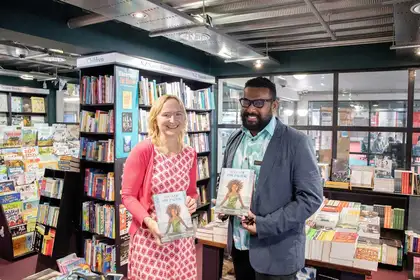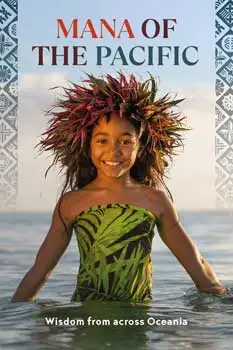
Development Studies Senior Lecturer Dr Apisalome Movono and Professor of International Development Regina Scheyvens, launch their new book Mana of the Pacific: Wisdom from across Oceania.
Mana of the Pacific brings together inspirational proverbs and beautiful photographs that highlight the strength, resilience, wisdom and innovation of people from across the Pacific.
The book is compiled by Development Studies Senior Lecturer Dr Apisalome Movono and Professor of International Development Regina Scheyvens, whose work focuses on Pacific people, their livelihoods and wellbeing. When researching how communities dependent on tourism in the region had responded to the global pandemic, they discovered people had drawn on their culture and heritage to support each other.
Dr Movono and Professor Scheyvens say there are plenty of examples of how, in the face of the current economic hardships associated with COVID-19 border closures, people have returned to the land and sea to provide for their families, diversified their livelihood systems, shared more with their neighbours, worked communally for the common good, and supported the less fortunate.
“Pacific people reported that they have thus felt rejuvenated during the pandemic, due to drawing on traditional values and practices. Our hope is that this book of proverbs will further engender pride in Pacific cultures and motivate young people seeking a positive direction in life,” Professor Scheyvens says.
Dr Movono and Professor Scheyvens say that for too long Indigenous peoples of the Pacific have been made to feel that their cultures are outdated, their traditions lack value, and that the only way they can develop is by drawing on external ideas and resources. Mana of the Pacific challenges that thinking and offers an important counterview; it shows a way of life that is sustainable and resilient.

Mana of the Pacific: Wisdom from across Oceania
The proverbs from 20 different cultural groups selected for Mana of the Pacific speak to a set of core values that underpin people’s ways of life across the region.
“We think this book is really valuable because it demonstrates the strengths of a wide range of Pacific cultures and knowledge systems,” Professor Scheyvens says.
It shows Pacific people to be resilient, hard-working, caring, family-oriented, grounded in their culture, and strongly attuned to the natural and spiritual worlds, Dr Movono adds.
“I feel there are many things in here that might encourage children of the Pacific living in other countries like Australia and New Zealand, and also many proverbs that will inspire non-Pacific readers who are interested in the Pacific region and its peoples,” he says.
The book includes photography and proverbs from Samoa, Fiji, Tonga, Tokelau, Cook Islands, Tuvalu, Federated States of Micronesia, French Polynesia, Hawaii, Kiribati, New Caledonia, Palau, Papua New Guinea, Republic of the Marshall Islands, Solomon Islands, Vanuatu and Niue.